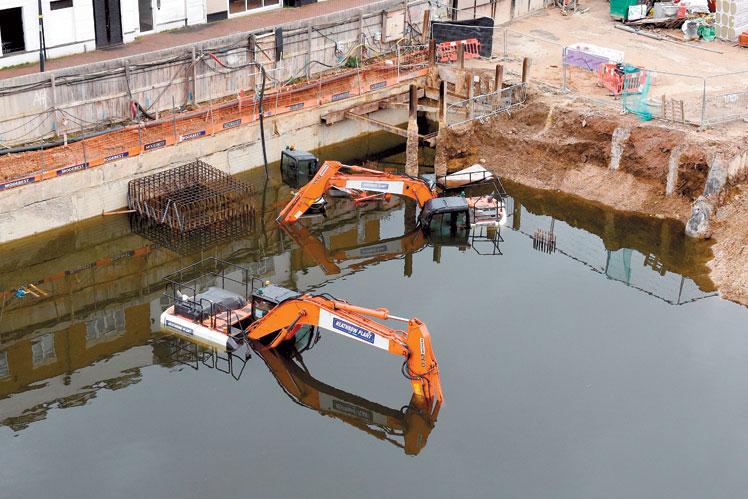Aside from the personal impact of flood damage to their own property there are two main implications from recent events for contractors.
The first priority must be ensuring the site is safe, including minimising further damage.
Undamaged Sites
Some construction sites may be physically unaffected by the recent floods, but completion may still be significantly delayed by issues of access or the unavailability of contractors or materials.
There is unlikely to be insurance to compensate the contractor for additional costs in these circumstances. A contract works policy requires physical damage or loss (such as theft) as a claim trigger. While they do include allowances for cost escalation and inflation, these only apply when the policy has been first triggered by an event of accidental damage or loss.
Business interruption insurance, which is uncommon among building contractors, may offer some cover for lost gross profit and additional increased costs of working as a result of physical damage or loss of access.
Contractually however, relief should be available from liquidated damages and time constraints . Additionally, increased costs as a result of an event that the builder has not caused and could not control (such as a cyclone) should not fall on the builder. The extent to which the builder is entitled to claim for these will depend on the specific contract terms.
Damaged Sites
These will require remediation through an insurance claim. With priority given to vulnerable customers the assessment of less urgent claims may take some time.
Contractors should take steps to minimise further loss. If work can proceed your insurer may agree to this provided that detailed records, such as photos and invoices, are retained.
Advanced consequential loss insurance, if included for the project, does cover for lost gross profit and additional increased costs of working as a result of physical damage to the works. This is typically applicable to losses suffered by the building owner as a result of delayed project completion, such as loss of rental income. However, it is generally only included on large commercial projects.
Who Pays the Excess?
This will depend on what your contract says. In general, our view is that the builder should be responsible for the excess when they are responsible for causing the damage or loss. In the case of a natural disaster or flood or storm damage the excess should be paid by the building owner/project principal.
Additional Works
If extra work is required as a consequence of the flooding, for example retaining walls as a result of slips or land instability, remember to increase the sum insured on the contract works insurance.
Renovations & Extensions
The same applies to work to an existing structure, such as alterations. In these cases, where contract works insurance is likely to have been arranged by the owner, it’s crucial that the builder ensures they extend the contract works insurance to allow for delays to completion.
Regular Communication
Keeping the building owner informed of what’s happening is also key to making sure a difficult situation isn’t made worse and a good relationship is maintained.
The information presented in this article is general in nature and not intended to be advice for individual situations. You should speak to an expert about your specific circumstances and needs.




